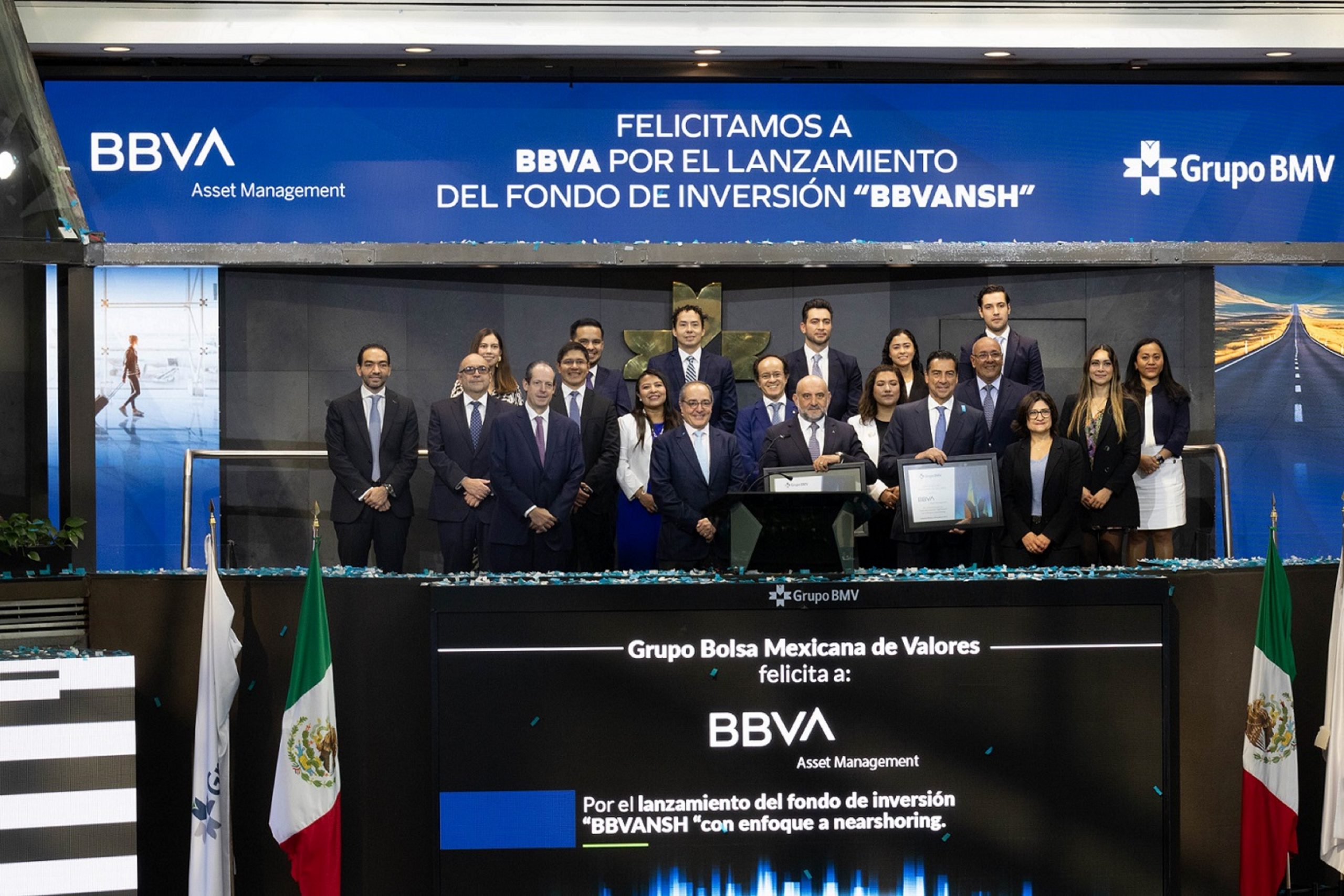Foreign Direct Investment (FDI) in Mexico linked to nearshoring grew at an annual rate of 47%, rising from $10.5 billion between January and September 2022 to a total of $15 billion in the same period of 2023.
This figure is one of the reasons BBVA México announced the launch of the BBVANSH investment fund, focused on the economic phenomenon of nearshoring, which is transforming the global dynamics of production and trade.
This investment fund is a Mexican equity product that operates with an initial capital of 120 million pesos ($6.48 million), selecting stocks of companies and Real Estate Investment Trusts (FIBRAs) focused on the logistics, supply, infrastructure, and services sectors.
The sectoral distribution of the investment fund primarily includes airport services, construction, rail transportation, passenger transportation, equipment and auto parts, as well as the hotel and education sectors, among others.
BBVA México led the country’s investment fund market during the first half of the year with a 24.53% share; the new BBVANSH fund increases the institution’s offering of investment strategies to 56 available products.
“BBVANSH not only reflects our commitment to innovation and adaptation to global trends but also our confidence in Mexico’s economic potential. We firmly believe that the fund, aside from providing attractive returns to our investors, will also contribute to the sustainable economic development of our country,” said Luis Ángel Rodríguez Amestoy, director of BBVA Asset Management México.
“We recognize the opportunity that this strategy represents not only for our country but also for companies and investments in the financial markets,” added Jorge Alegría Formoso, CEO of the Mexican Stock Exchange.
According to BBVA México, BBVANSH will consist of between 15 and 35 issuers listed on the Mexican Stock Exchange, with approximately 70% being companies and 30% FIBRAs, prioritizing high and mid-cap issuers.
The expectations of the Mexican Institute for Competitiveness (IMCO) indicate that nearshoring will continue to be one of the major investment magnets for the Mexican economy in the coming years.
IMCO recently highlighted an analysis of the 57 sectors most related to nearshoring and the trend of FDI, including automobile and truck manufacturing, pharmaceuticals, and the beverage industry—data that BBVA also considered when launching its new product in the institution’s fund family.




